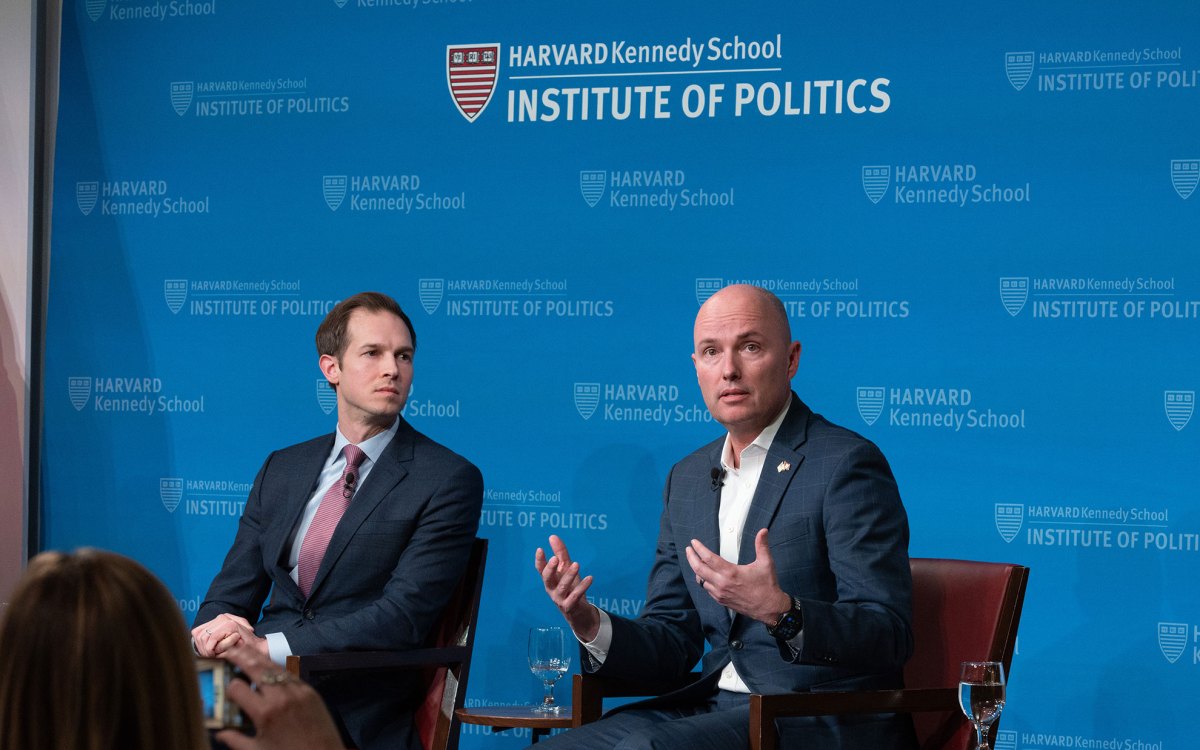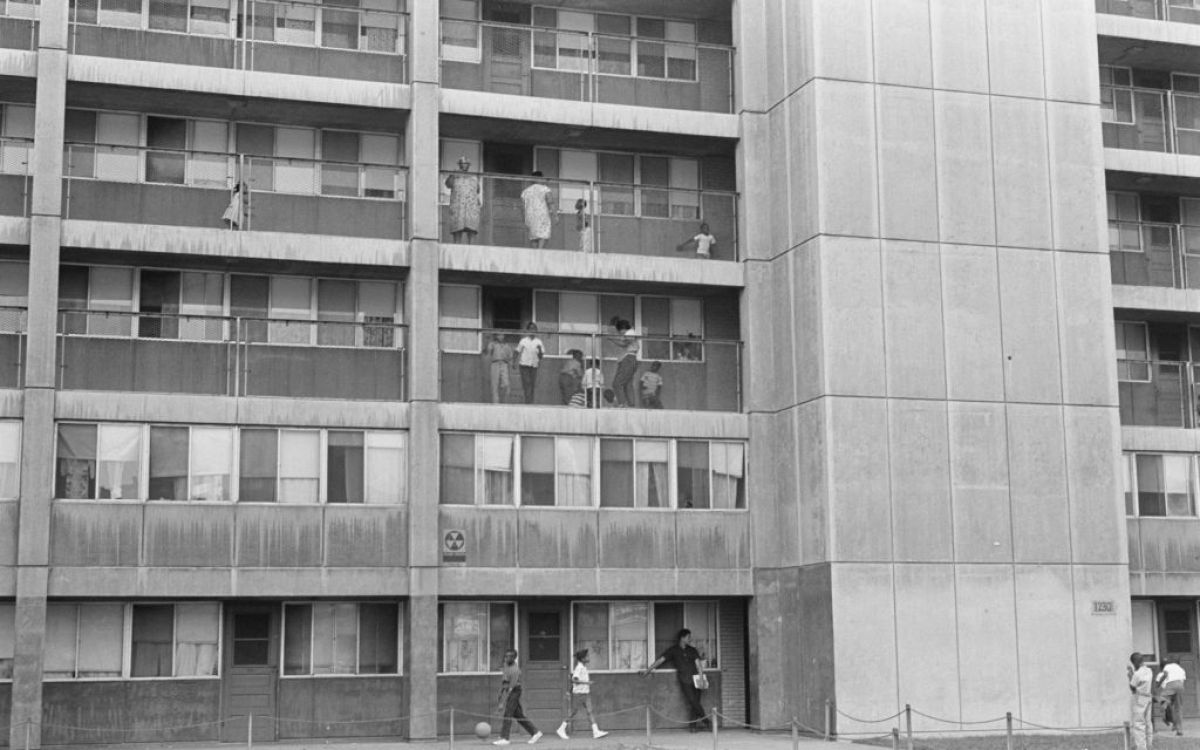Universities need to ‘vindicate our public purpose,’ Sandel says
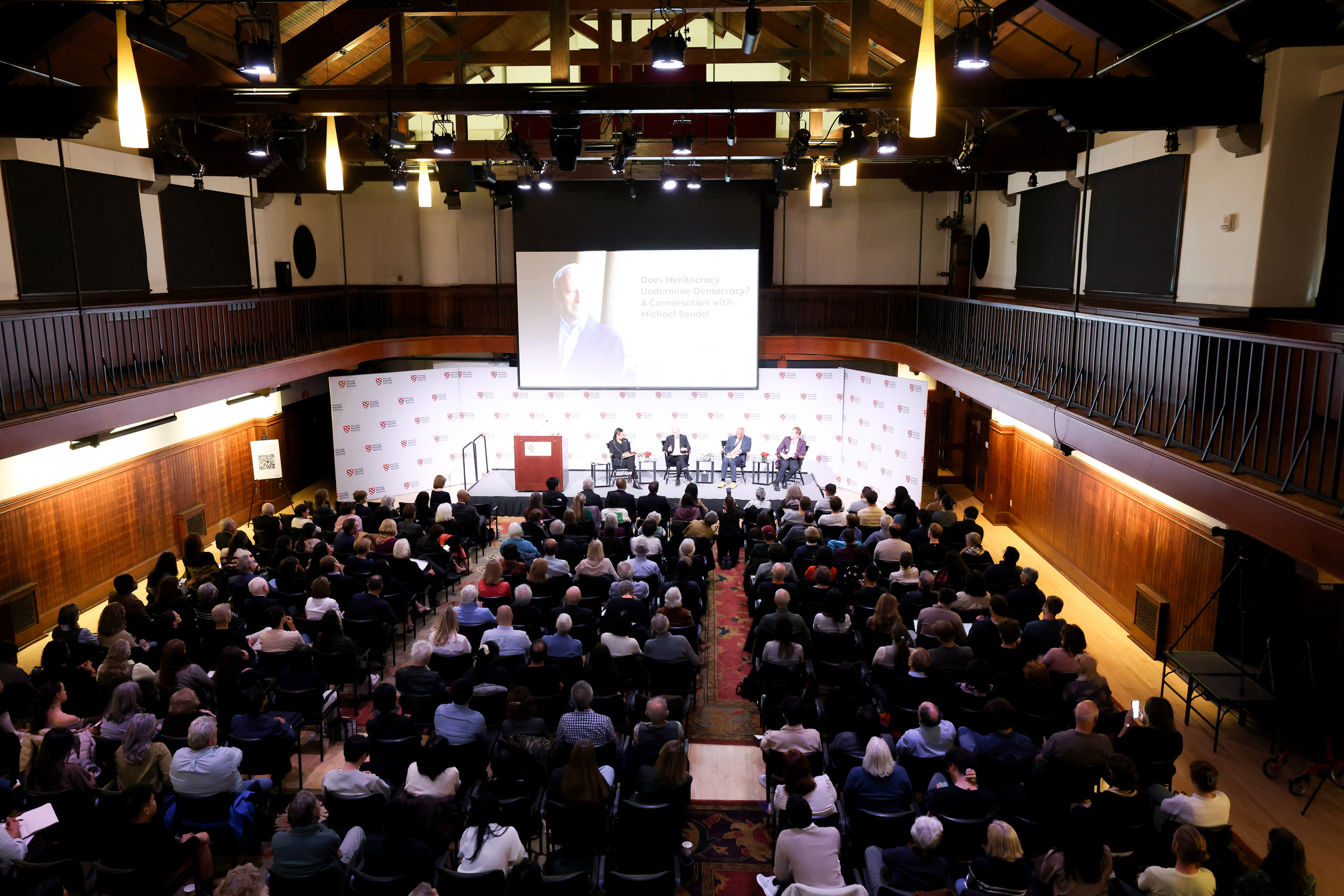
Photos by Veasey Conway/Harvard Staff Photographer
David Deming and Randall Kennedy discuss — and debate — good, bad of meritocracy with ‘Justice’ philosopher
Higher education may be an important source of economic and social mobility, but it doesn’t do nearly enough to meaningfully reduce inequality in the U.S., according to political philosopher Michael Sandel.
And the prestige that elite schools enjoy reinforces privilege, and often leads graduates to see themselves as society’s rightful winners, he added.
“[That] leads to hubris among the winners, leads them to inhale too deeply of their own success, to forget the luck and good fortune that helped them on their way, to forget their indebtedness to those who made their achievements possible,” Sandel said during a lecture last Thursday at Harvard Radcliffe Institute. “And it leads to humiliation to those left behind, those less fortunate than themselves.”
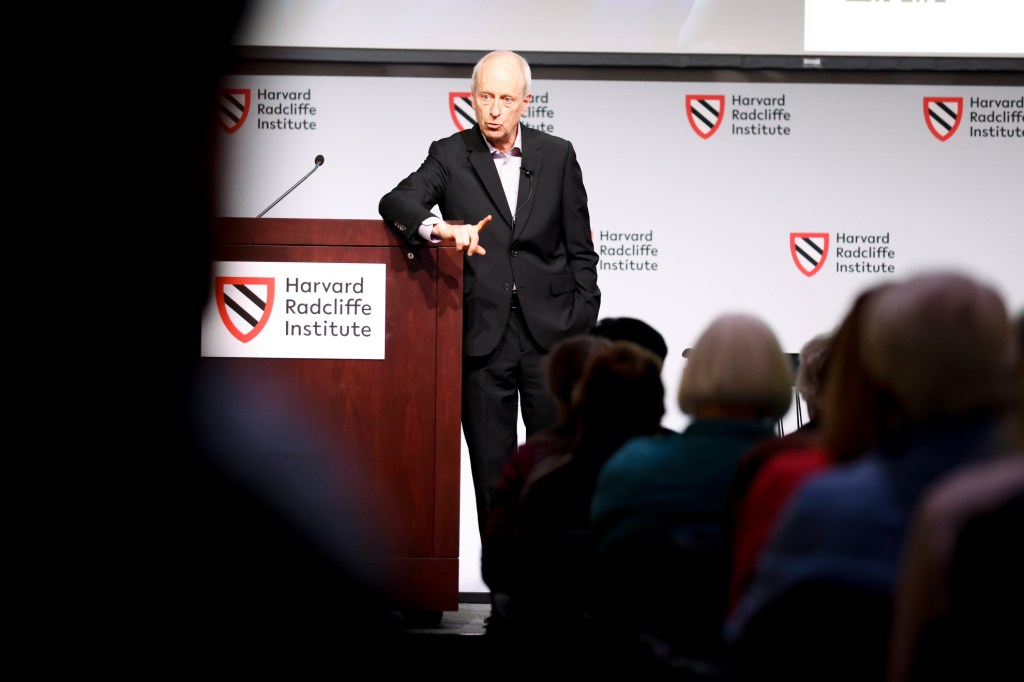
The lecture, titled “Does Meritocracy Undermine Democracy?” and moderated by Harvard Radcliffe Dean Tomiko Brown-Nagin, was followed by a panel discussion with economist and Harvard College Dean David Deming and Harvard Law School Professor Randall Kennedy. It was the first in a new series that’s part of a five-year initiative launched last fall at Radcliffe to promote civil discourse and academic freedom.
The current populist backlash against higher ed is driven in large part by a view among many working people “that credentialed elites look down on them,” said Sandel, the Anne T. and Robert M. Bass Professor of Government. It’s “a legitimate complaint” given that 62 percent of Americans don’t have a four-year college degree, and it deepens cultural divisions.
Top colleges and universities can begin to counteract that perception by using a lottery system to select from among the thousands of worthy and qualified students who apply each year.
A lottery would minimize the significant advantages wealthy applicants still retain in the “meritocratic tournament of college admissions” and relieve high school students of the relentless pressure to compete with each other, argued Sandel, who has written widely on the topics of justice and inequity, including 2020’s “The Tyranny of Merit.”
Deming, an economist who studies education, supports the lottery idea and the principle of greater transparency that’s behind it, but disagreed with Sandel that higher education is undermining democracy. The country should make greater investments in higher education so more people can attend and thrive, he said.
“We’ve gone from a world where probably only one in 10 or one in eight people need to go to college to a world where almost everyone does, and yet we don’t spend enough money as a society on providing the resources to make that possible,” said Deming.
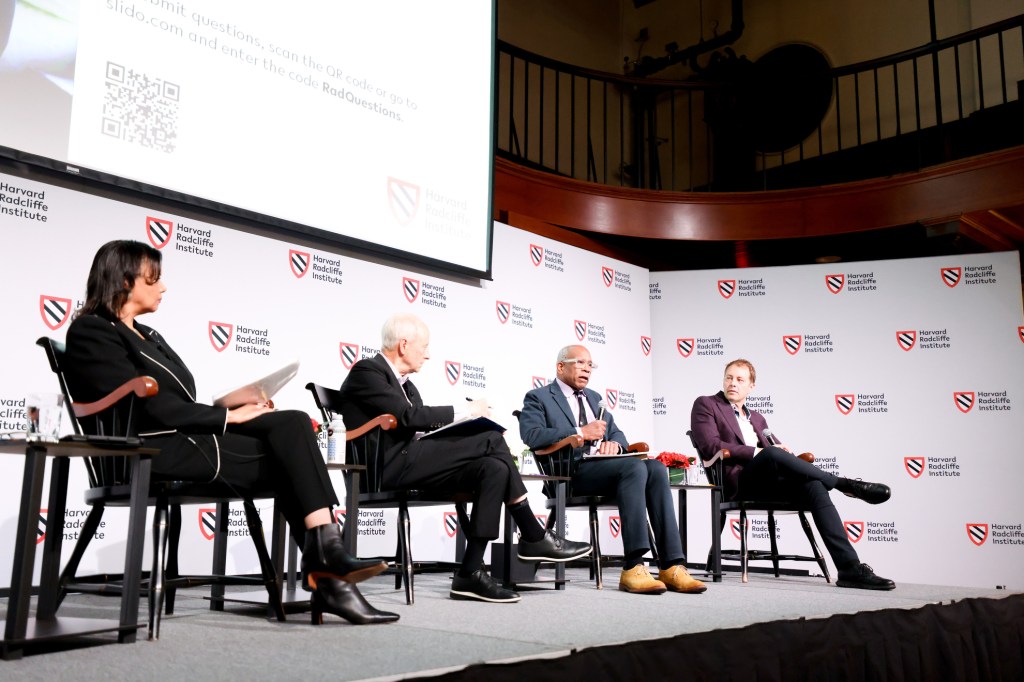
“The fundamental source of inequality is that so many young people who have talent but are not ready to take full advantage of those talents are not able to achieve their potential because they do not have the resources devoted to them that a place like Harvard or other universities provide,” said Deming, who noted half of the Class of 2029 pays no tuition.
Kennedy said while he shared Sandel’s criticism of meritocratic hubris, eliminating all competition between students is not an effective solution to rising inequality.
One driver of populist complaints about higher education that gets overlooked is the “aggressive, anti-meritocratic envy and resentment” of those attacking Harvard and other colleges and universities, said Kennedy, a scholar of racial equality. There’s also been “a concerted campaign to vilify the universities and undercut the public’s trust” by political partisans in the media, he said.
“The subtext of some of your remarks was that we have brought it on ourselves and deserve to be brought low,” Kennedy said to Sandel. “I don’t think so. I think at this moment, we face the perennial adversaries of excellence, and we need to be willing to protect legitimate meritocracy.”
To win back and be worthy of public trust, higher education needs to “vindicate our public purpose,” said Sandel, who was awarded the Berggruen Prize for Philosophy and Culture earlier this month.
“We have to show that in addition to launching our students on successful careers, we are institutions who serve the public good, and I think we’ve strayed from that mission,” he said.
“I think we can and should do more to show that that our mission is not to promote private privilege, but to contribute to the public good.”
